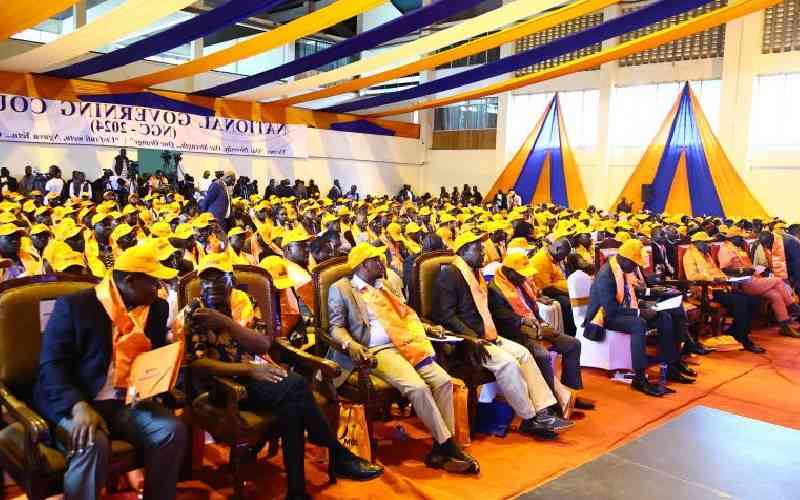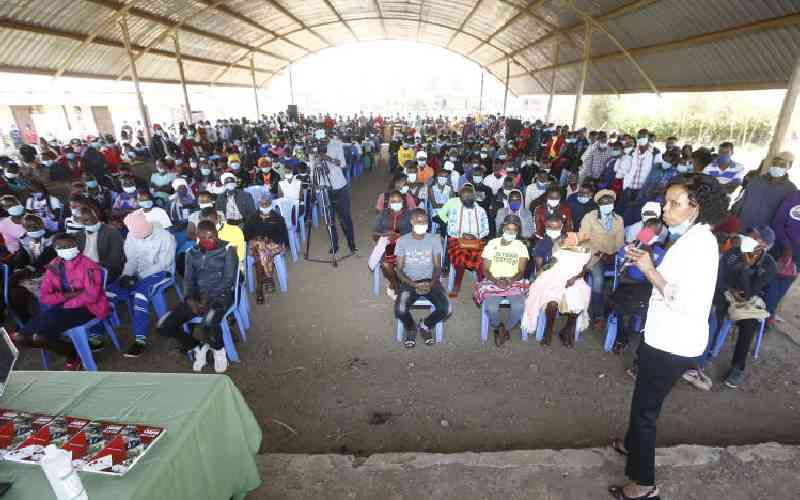
Kenya, like many parts of Africa, governance of public and customary lands has faced criticism for being opaque, poorly managed and excessively centralised.
The alarming illegal allocation of public lands in Kenya prompted the formation of the Ndung’u Commission in 2003 to investigate these concerns. Officially known as the Commission of Inquiry into the Illegal/Irregular Allocation of Public Land, the Ndung’u Commission undertook a nine-month investigation into public land allocation and management.
The commission then released a report in 2004 exposing widespread mismanagement of public land and exposing how well-connected individuals acquired public land through illegal or irregular means.
The Ndung’u Commission’s findings fueled demand for an independent body to oversee public land administration and rescue the country from the claws of irregular and illegal public land allocation.
Kenya’s 2010 Constitution, Article 249 (1) outlines the objectives of commissions and the independent offices: to protect the sovereignty of the people, secure the observance by all state organs of democratic values and principles and promote constitutionalism.
Further, Article 249 (2) emphasizes that the commissions and the holders of independent offices, are subject only to this Constitution and the law; and are independent and not subject to direction or control by any person or authority.
Article 62(2) and (3) of Kenya’s 2010 Constitution stipulates that public land be held in trust by both county and national governments in trust of the people, and be administered by the National Land Commission (NLC).
The NLC, as detailed in Article 67(2) of the Constitution, shoulders various responsibilities, including managing public land, recommending land policies, conducting research, and addressing historical land injustices.
Responding to the constitutional provisions, the National Land Commission Act of 2012 was enacted to further define the NLC’s functions and powers, ensuring compliance with principles of devolved governance.
However, recent proposed amendments through Land Laws (Amendment) Bill of 2023 that seek to enhance institutional effectiveness cast doubt on achieving this goal. The proposed amendments seek to centralize key functions of land administration within the Ministry of Lands, undermining the autonomy of the NLC.
We must therefore seek answers to these questions: Does centralising public land administration functions within the Ministry of Lands risk taking us back to the ndung’u commission era? How can Kenya ensure effective public land governance without undermining the autonomy of critical institutions like the National Land Commission?
Amendments to land laws must seek to protect the gains made so far, uphold the independence of constitutional commissions and maintain the integrity of Kenya’s land governance system.
The writer is the Director, Land and Environmental Justice, Namati Kenya
Stay informed. Subscribe to our newsletter
 The Standard Group Plc is a
multi-media organization with investments in media platforms spanning newspaper
print operations, television, radio broadcasting, digital and online services. The
Standard Group is recognized as a leading multi-media house in Kenya with a key
influence in matters of national and international interest.
The Standard Group Plc is a
multi-media organization with investments in media platforms spanning newspaper
print operations, television, radio broadcasting, digital and online services. The
Standard Group is recognized as a leading multi-media house in Kenya with a key
influence in matters of national and international interest.
 The Standard Group Plc is a
multi-media organization with investments in media platforms spanning newspaper
print operations, television, radio broadcasting, digital and online services. The
Standard Group is recognized as a leading multi-media house in Kenya with a key
influence in matters of national and international interest.
The Standard Group Plc is a
multi-media organization with investments in media platforms spanning newspaper
print operations, television, radio broadcasting, digital and online services. The
Standard Group is recognized as a leading multi-media house in Kenya with a key
influence in matters of national and international interest.










